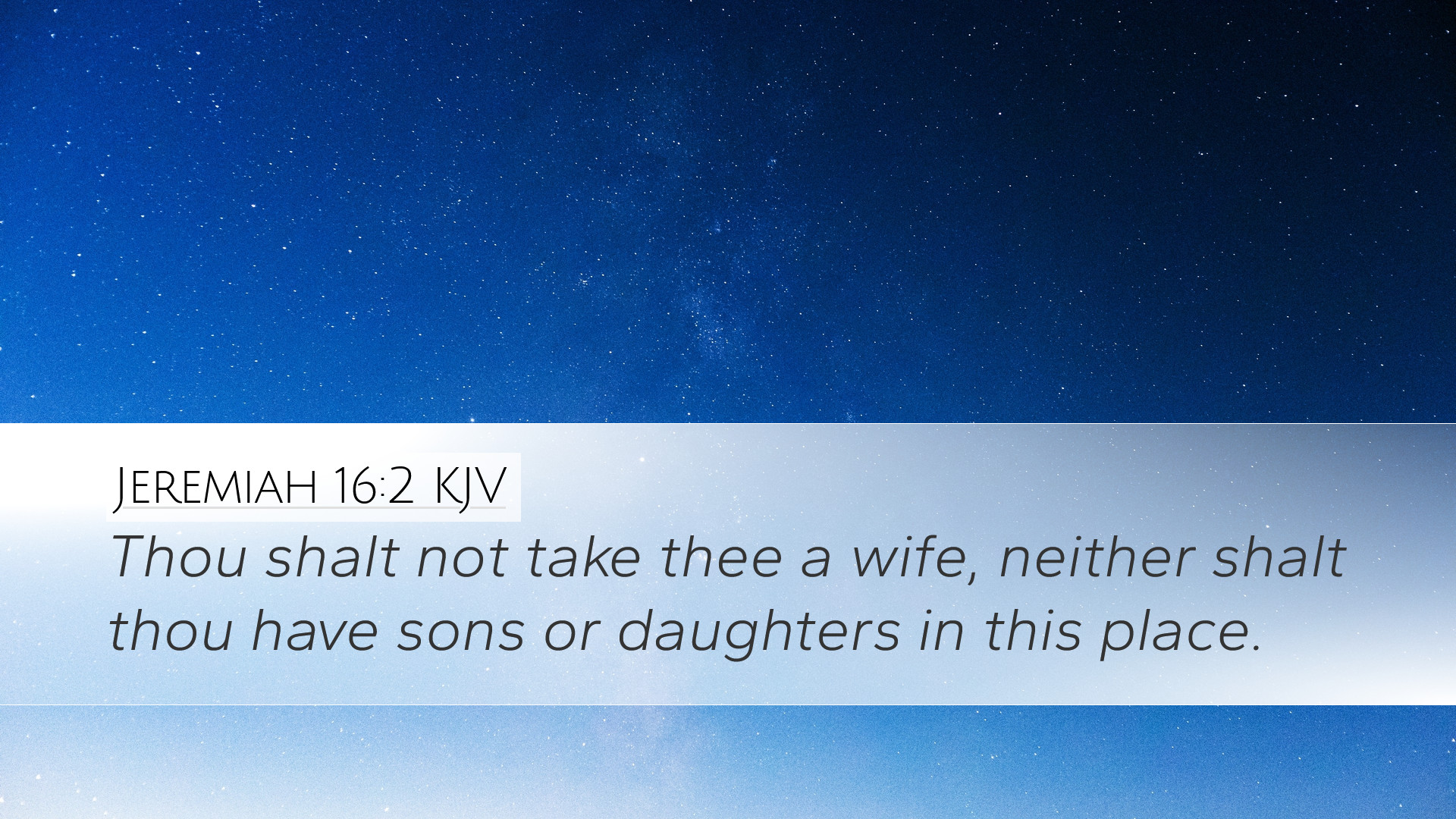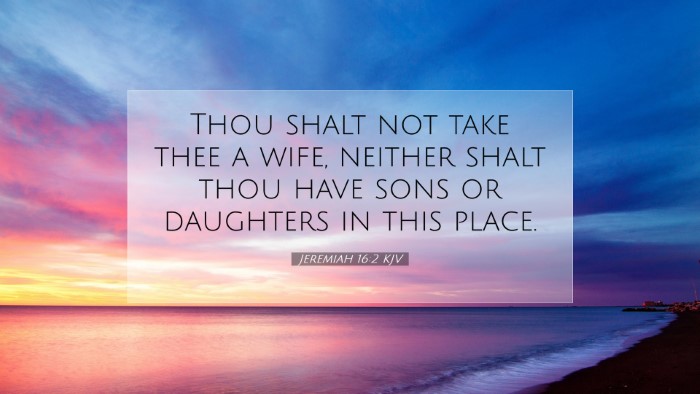Commentary on Jeremiah 16:2
Verse Context: Jeremiah 16:2 states: "You shall not take a wife, nor shall you have sons or daughters in this place." This directive from God established a significant aspect of Jeremiah's prophetic ministry and stance within the Biblical narrative.
Understanding the Command
Divine Directive: This command was given to Jeremiah during a time of impending judgment on Judah. Such a command underscores the severity of the situation, indicating that normal family life was impossible in a land marked by impending doom. God's instruction to remain unmarried symbolizes the gravity of the circumstances.
Theological Implications
-
God’s Sovereignty: The command reflects God's authority and sovereignty over the affairs of humanity. Jeremiah’s obedience to this directive highlights the prophet’s role as a divinely appointed messenger, whose life was to serve as a stark reminder of the consequences of sin.
-
Judgment and Hope: Although the command is severe, it also carries an underlying theme of hope. By instructing Jeremiah not to marry, God is signaling that the current state of rebellion will lead to devastation, but ultimately, the promise of restoration can be found in future prophecies of a new covenant.
Commentary Insights
Matthew Henry’s Commentary
Matthew Henry illuminates the gravity of remaining single as a symbol of the nation's forthcoming desolation. He emphasizes that God’s directives are not merely tasks but are representations of a deeper spiritual truth: the separation from worldly ties can lead to a more profound focus on God’s mission. Jeremiah, by abstaining from marriage and family, exemplifies total devotion to God amidst societal decay.
Albert Barnes’ Notes
Albert Barnes aligns Jeremiah’s celibacy with the prophetic burden he carries. He suggests that by remaining unmarried, Jeremiah becomes a living witness to the destruction awaiting Judah. Barnes notes the cultural importance of family, thus pointing out that the absence of domestic joys highlights the severity of the coming judgment. His insights emphasize how personal sacrifices enhance one’s prophetic voice.
Adam Clarke’s Commentary
Adam Clarke discusses the implications behind the metaphor of not taking a wife. He recognizes that this instruction illustrates a state of mourning and destitution, reflecting the overall condition of the nation. Clarke expands on the potential societal reactions towards Jeremiah, which may include ridicule and disdain, further stressing the isolation of true messengers of God in times of moral decay.
Applications for Today
Radical Obedience: Jeremiah's life calls today's believers to reflect on their commitments—whether to God's calling surpasses personal aspirations. He exemplifies radical obedience, offering an essential example for pastors, students, and scholars to consider their willingness to sacrifice personal desires for God’s purpose in their lives.
The Cost of Discipleship: This passage reminds followers of Christ that true discipleship may require challenging personal sacrifices. In a world focused on fulfilment and comfort, Jeremiah’s situation serves as a powerful reminder that obedience to God can lead to suffering, isolation, and misunderstanding from others.
Conclusion
Jeremiah 16:2 serves as a poignant reminder of the costs associated with prophetic ministry and divine calling. Through insights from Henry, Barnes, and Clarke, we learn that the call to holiness often intersects with discomfort and sacrifice. As today’s followers of Christ navigate their faith in a world increasingly at odds with God’s truth, the life of Jeremiah stands as a beacon of unwavering commitment and divine trust in adverse circumstances.


